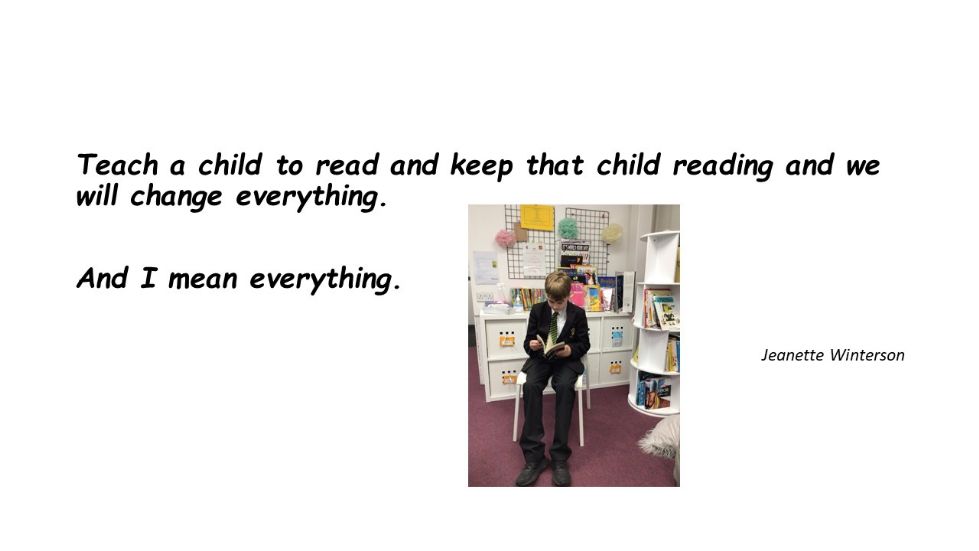English KS4
Team
In KS4 our English team consists of 3 full time teachers plus specialist support staff in each session.
The students have 4 hours of English per week. In addition to this there is an allocated session at the beginning of the day for phonics, this focuses on sounds, blending and reading. After lunch time is allocated for accelerated reading.
Achievement and Progress
Students enter KS4 with an assessment profile that defines their KS4 pathway. Student progress continues to be closely monitored throughout the school year to ensure that targets are met and interventions can be introduced as required.

Curriculum Overview
Within KS4 students are offered external accreditation at both Entry Level and Functional Skill. The schemes of work have been designed to encompass the three strands of reading, writing and speaking and listening in line with the new National Curriculum requirements. Sessions are carefully planned to support and extend as required with differentiation being a key factor to success.
We have introduced the Accelerated Reader programme which is designed to encourage independent reading and enjoyment of books. This programme helps to develop a wider range of vocabulary choices and understanding of texts read. Our library is continually updated with new and exciting age appropriate reading books.
Homework
Homework is not formally set, but students are expected to read on a regular basis. Spelling homework may be sent home as a supplementary activity plus Functional Skills exam revision tasks.
Overview of the teaching programme for KS4:
Entry Level Qualification:
Aims and Learning outcomes:
- read a range of texts with some understanding
- use knowledge gained from reading to inform their own writing
- write using Standard English appropriately
- use grammar correctly, punctuate and spell accurately
- acquire an appropriate vocabulary in reading, writing and spoken language
- understand and respond to spoken language and use spoken Standard English where appropriate
|
Autumn Term Spring Term Summer Term |
||
|
Entry Level: Spoken Language: Students complete one task for Spoken language, such as:
Assessment for Spoken Language consists of a discussion or role play. Tasks are set which offer challenges appropriate to student's abilities. Appropriate tasks are based on personal interests and contexts familiar to the learner. The requirements for the Spoken language task are as such that the topic can be linked to vocational qualifications.
|
Entry Level: Reading: Students read a range of non-fiction texts types, such as:
Students respond to questions on non-fiction texts and show some understanding of the information and ideas presented in them. Reading: Students read a range of literacy texts, such as:
Students respond to questions on literacy texts and show some understanding of the information and ideas presented in them. Assessment for reading consists of two tasks to complete from the bank of tasks set b non-fiction text and Understanding a literacy text. Each task consists of one text of approximately 250 words followed by a series of short answer questions. Learners give written responses to the questions in the spaces provided on the question paper. The questions test learners' understanding of the text: their ability to understand explicit meanings, to infer meanings, to summarise information and to comment on the use of language.
|
Entry Level: Writing: Students complete an Informative writing task, such as:
Students complete an imaginative writing task such as:
In both pieces of writing students should be able to;
Assessment for writing consists of two tasks to complete: one Informative writing task and one Imaginative writing task. Each task should be appropriate tasks and should be based on personal interests and contexts familiar to the student. The requirements for the writing task are as such that the topics can be linked to vocational qualifications if it is appropriate for the student. The types of texts particularly for the informative writing task, give students the opportunity to produce sufficiently substantial text to enable them to access the marking criteria. For example, a leaflet for an event would need to include more than headings, images and basic time/date information. It could include a description of the event and reasons why people might want to attend etc. |
Overview of the teaching programme for KS4:
Functional Skills qualifications:
Aims and learning outcomes:
- Develop confidence in English skills, preparing them for progression into employment or further education and for use in their daily lives.
- Develop their presentation and discussion skills around topics of their own choice
- Produce texts in writing of different lengths to different audiences
- Develop questioning in reading assesses ability to understand different texts.
| Autumn Term | Spring Term | Summer Term |
|
Functional Skills Speaking, listening and communicating: Students complete a presentation and a discussion, such as: Presentation activities could include a personal travel experience, including the detailed narration of a key event with an explanation. Also, an explanatory presentation about the impact of social media on young people. Or, a group activity where students make separate presentations around the idea of self and identity. For example; regionality, social class etc. Discussion activities could include subject matter of the above presentations or a free standing discussion introduced by a member of the group. E.g. discussion about travel. In this case, samples of promotional literature might be available alongside newspaper articles, local promotions etc. Or a discussion about gender equality. |
Functional /skills Reading: Students read a range of straightforward texts of different topics, such as:
Also, students will learn the following elements:
|
Functional Skills Writing: Students produce a range of straight forward texts of different topics, such as:
Students are also graded on application of:
|
